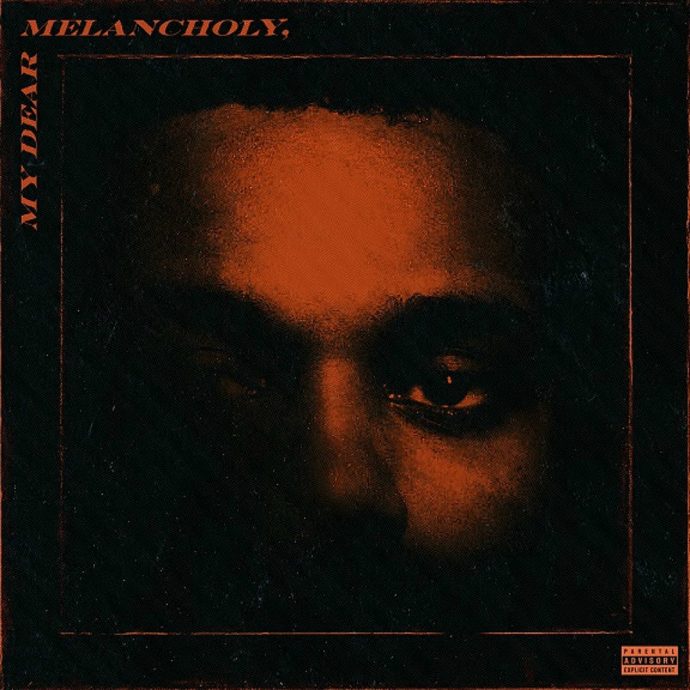The Weeknd’s legacy as a tortured, depraved crooner resurges on My Dear Melancholy. After the overindulgent pop sound of Starboy, such a return was welcome, especially considering that the moody atmosphere of “Trilogy” is what put The Weeknd in people’s headphones. Comparisons between this record and The Weeknd’s compilation are already flying, some of which have merit and some that do not. My Dear Melancholy practices many of the techniques used by The Weeknd during his earlier work, but, in a total sense, it is much more personal and much less interesting.
The first track is in many ways a summary of the album. “Call Out My Name,” in its nocturnal, spacey sound and patch of distortion, attempts to imitate earlier Weeknd tracks such as “High For This,” while also maintaining the confessional edge in its lyrics. These lyrics mostly refer to Abel’s relationship with ex Selena Gomez, and it is the duality of these lyrics – private feelings toward a public individual – that creates the turmoil that is supposed to be lying underneath. The gossip aspect of it aside (which is only mentioned because it is intrinsic to this record), it does not change the fact that “Call out My Name” is a legitimately good song that comes through as clearly emotional and hurt. By that same logic, that same aspect which does not deny the first track its greatness does not lend greatness to what comes after.
“Try Me” is one of the catchiest tracks on the record. The Weeknd’s vocals hit a kind of sleek flow that they’ve hit before on songs like “Wicked Games” or “XO/ The Host.” The percussion is also remarkably smooth here, most likely owing to Mike Will Made-It’s contribution to the production. The lyrics, however, seem to embody every cliché in The Weeknd’s discography. The sexual mythology and intensity, the sense that the singer is broken, a low-key desire for love: all of the usual suspects are here. The more you listen to “Try Me,” the more it begins to feel like another Weeknd song.
This is true of most of the songs that come after “Try Me.” “Wasted Times” is just a more vibrant version of “Kiss Land,” though it must be said that its lyrics aren’t as cliché as the prior song. Skrillex also happens to be a collaborator and I can only hope he wasn’t too expensive considering how forgettable the beat is. The producers, Frank Dukes being the second, must have been aiming for a darker version of the sounds we heard on Starboy but failed for the most part.
Uniqueness seems to become even less of a concern on the following half of the record. “Hurt You” comes off as a Starboy B-side while “I Was Never There” seems like it would be comfortable on “Kiss Land.” This, again, doesn’t necessarily take away from the songs virtues and failures. “I Was Never There,” uses a multitude of sounds to compose its melody, much of which comes from the production talents of Frank Dukes and Gesaffelstein. “Hurt You,” with its glossiness and shimmer, seems to represent everything wrong with Starboy while also trying to apply this layer of sentimentality which comes off like wearing a wedding dress to a funeral. The final song, “Privilege,” is most likely the worst in the track last. It has such a sonic blandness to it that makes you want to skip and just listen to “Call Out My Name” again.
In many ways, this project in its entirety feels skippable. It has its moments of course, but it also seems like The Weeknd is simply switching across two tricks: somber R&B and lively soul-pop. This time we got the former, but it is just so similar to every other time he has done it.
Rating: 5/10


Hating to hard on EP I was never There and Wasted Times are amazing and Privilege might be the best songs on the album I agree that Try Me and Hurt You are skippable but overall I give the project a 6 or 7